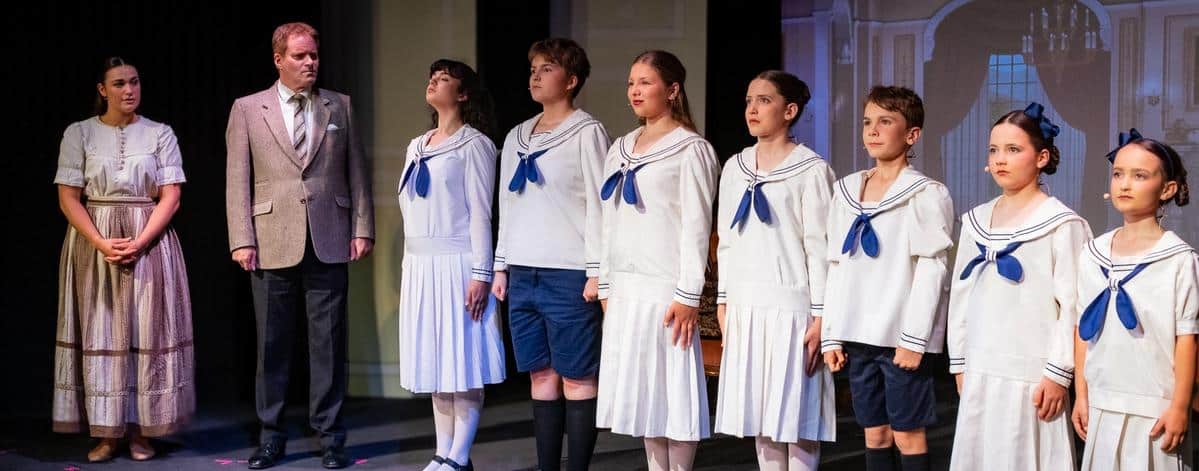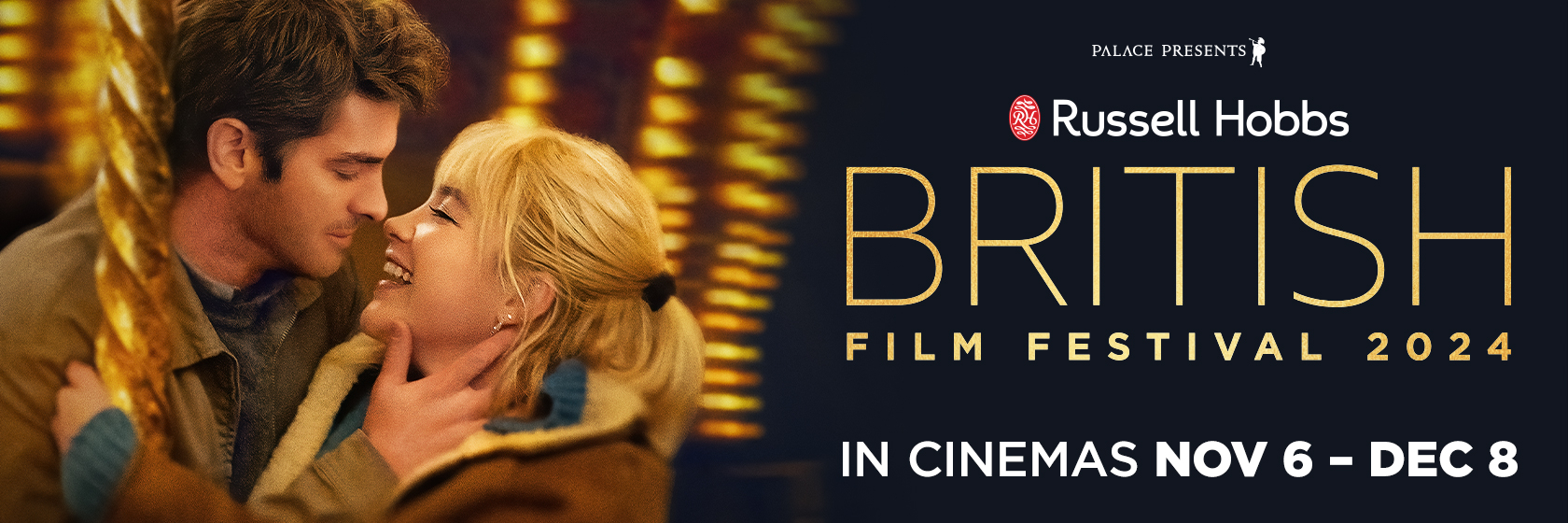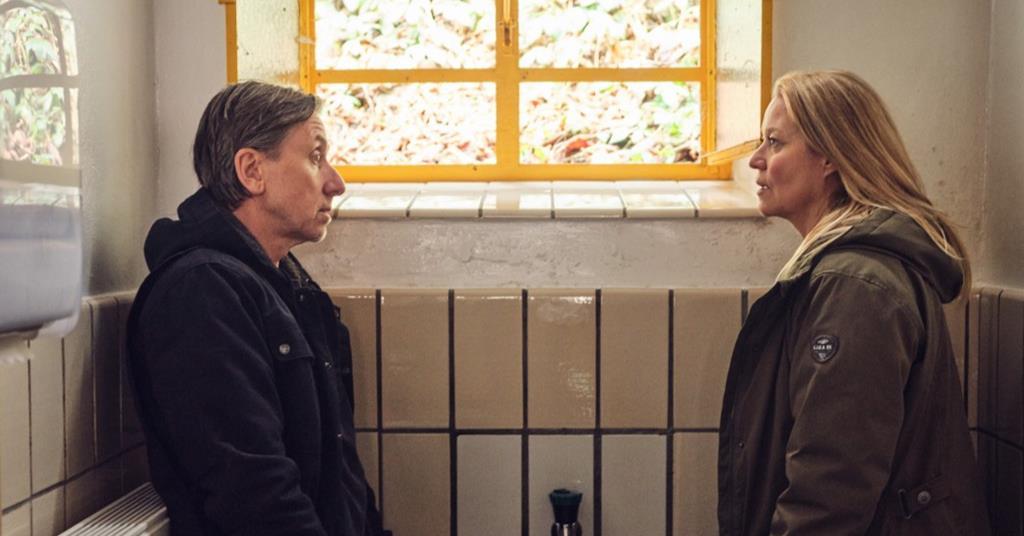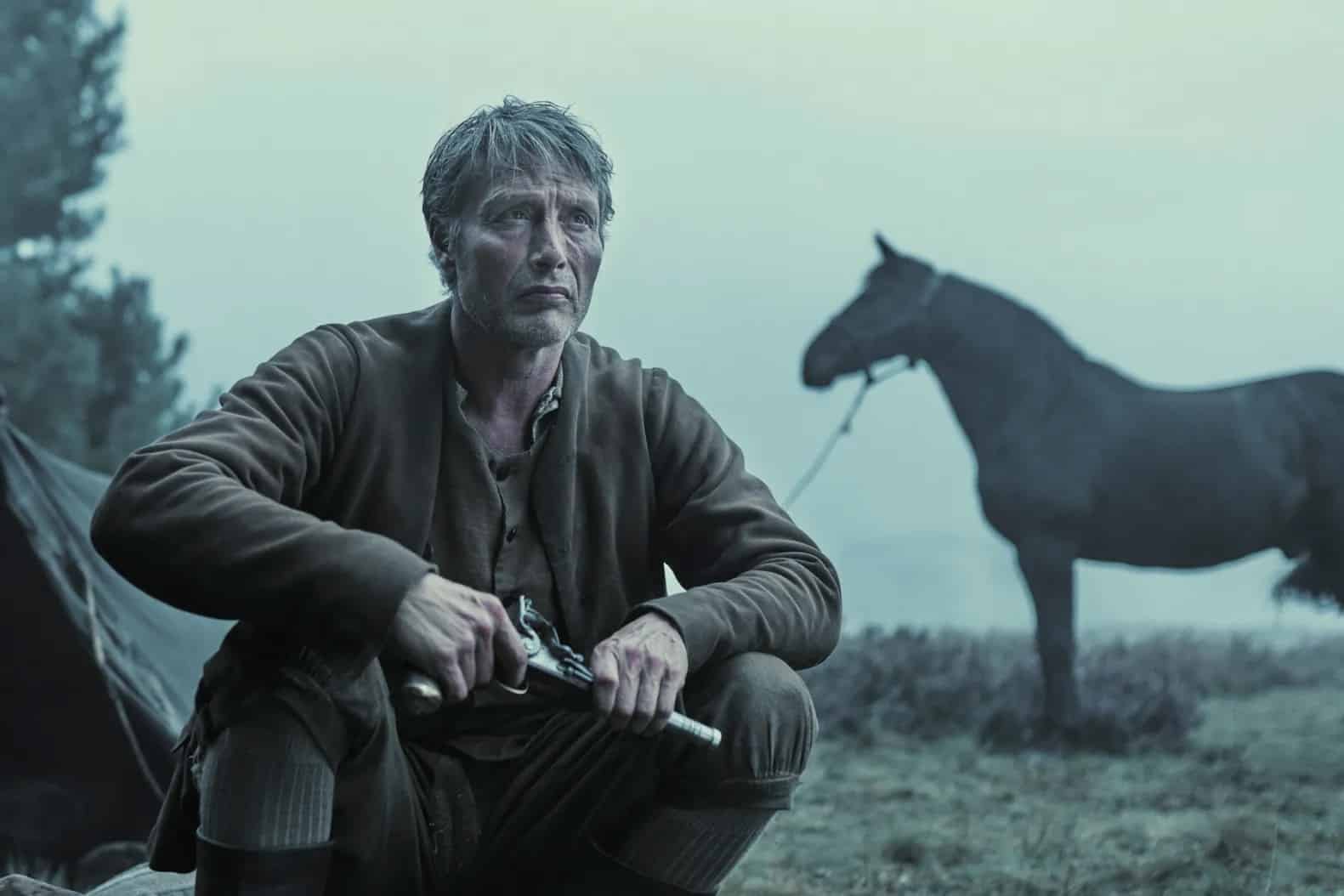The Sound of Music at the Melville Theatre Company revisits the famous story of a novice sent to work for a widowed naval captain and his seven children. It is set against the backdrop of the Austrian ‘Anschluss’ during World War II.
Director and musical theatre devotee, Neroli Sweetman has accomplished a grand feat, in wrangling a sizeable cast and crew to bring this ambitious production to fruition.
As might be expected, there’s a plethora of singing postulants—read: nuns. The four-hander between Sisters Bertha (Lily Wakeling), Margaretta (Ebony MacFarlane), Sophia (Parish Findlay), and the Mother Abbess is particularly charming, All four of these actors bring genuine nuance to their characters.
Wimples-off to Eilish Marie Blackmore as the Mother Abbess. Though perhaps a tad young for the role, she delivers a soaring rendition of ‘Climb Every Mountain’ that could rival a West End performance.
WAAPA graduate Hannah Charlotte, playing Maria, starts a little nervously but warms to the lead. By the play’s end, her performance is truly endearing—with a touch of the Kate Winslet. And that’s high praise.
The Von Trapp children are utterly delightful from start to finish. Played respectively by Escher Roe, Leon Brand, Aurelia Turley, John Bell, Quin Dally, Halle McDonald, and Jasmine Dally (with doubles Charlotte Theodorsen and Bowie Silvay). As soon as they appeared, the stage-wattage went up and their renditions of “Do Re Mi’ and ‘So Long Farewell’ had the audience enraptured.
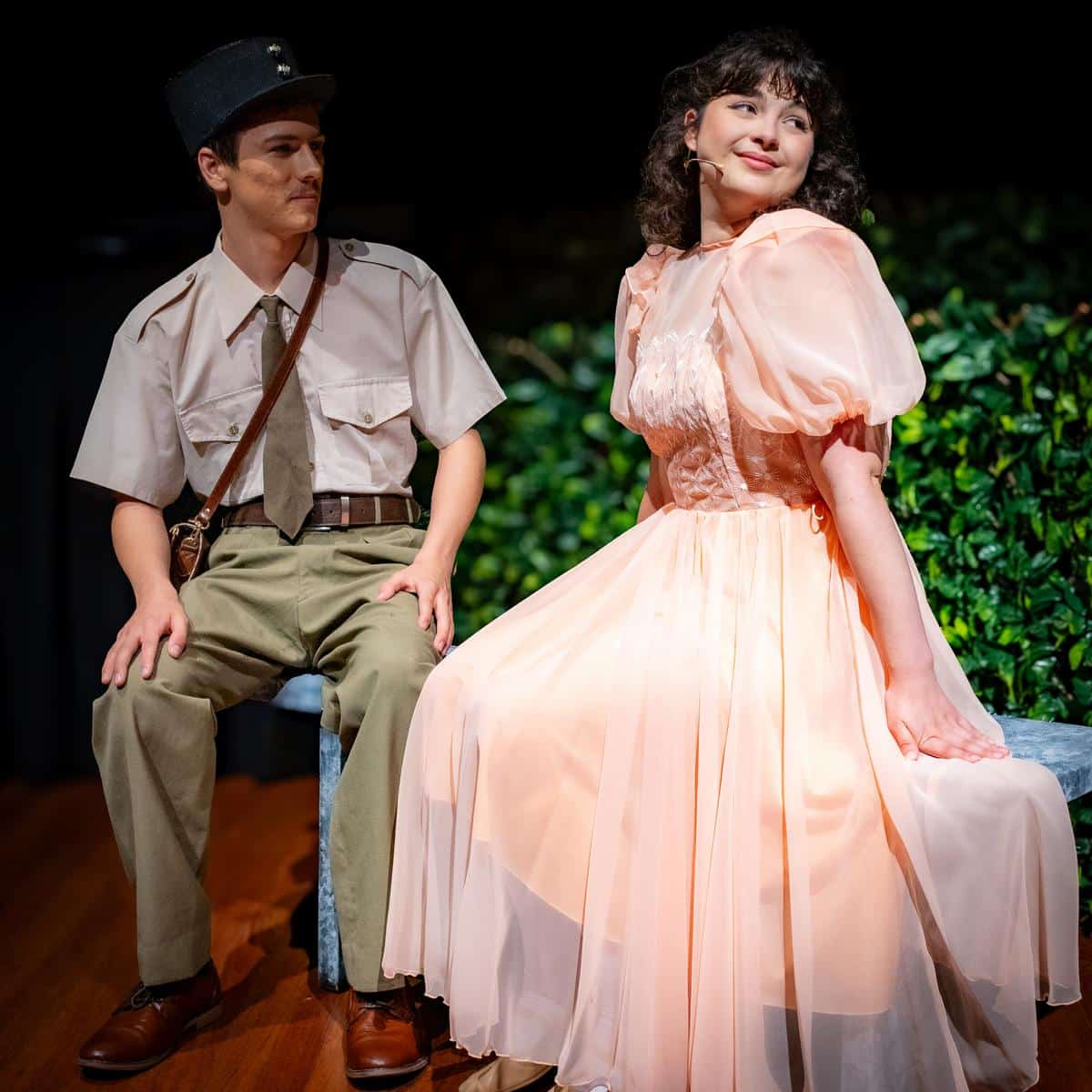
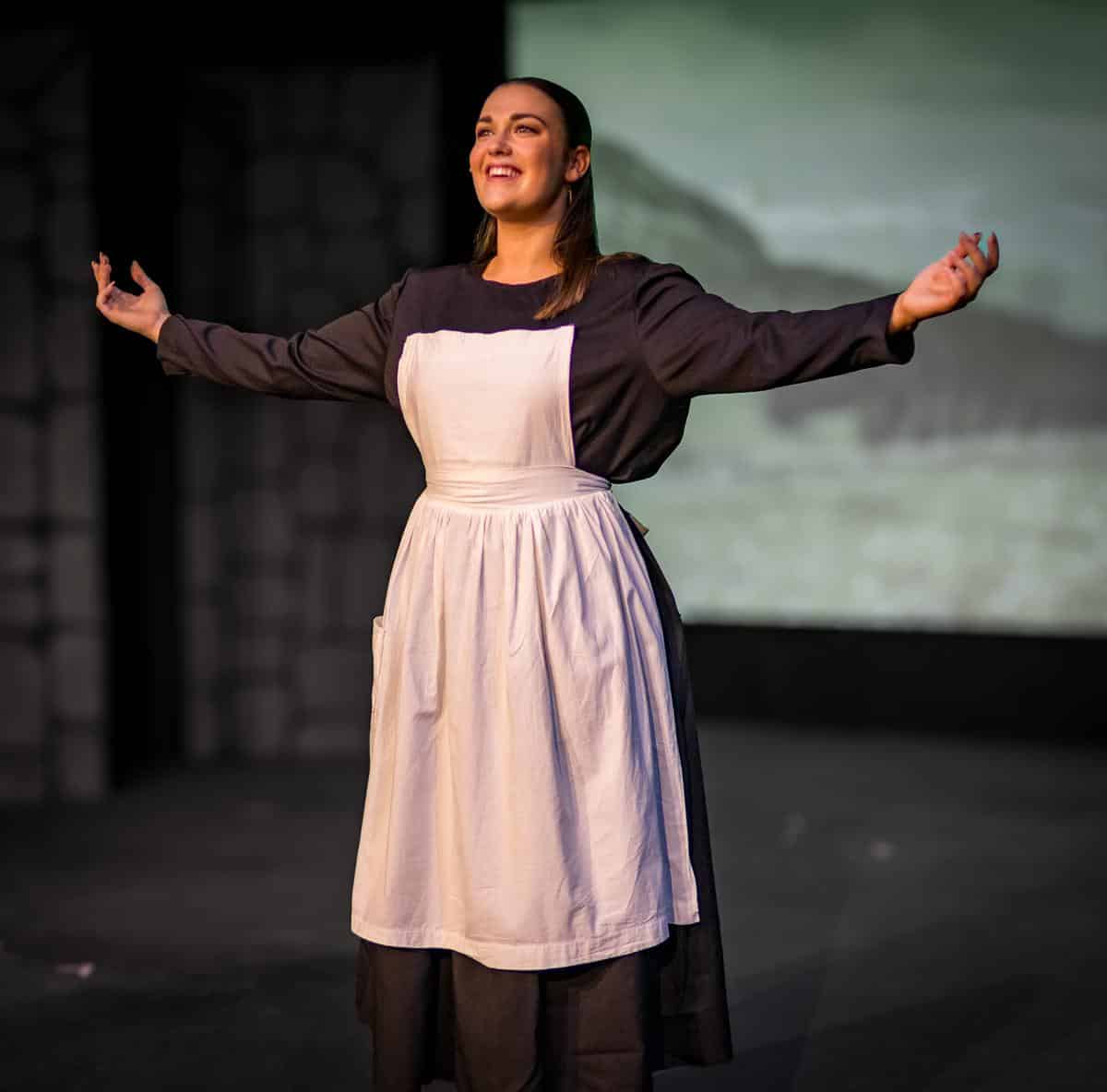
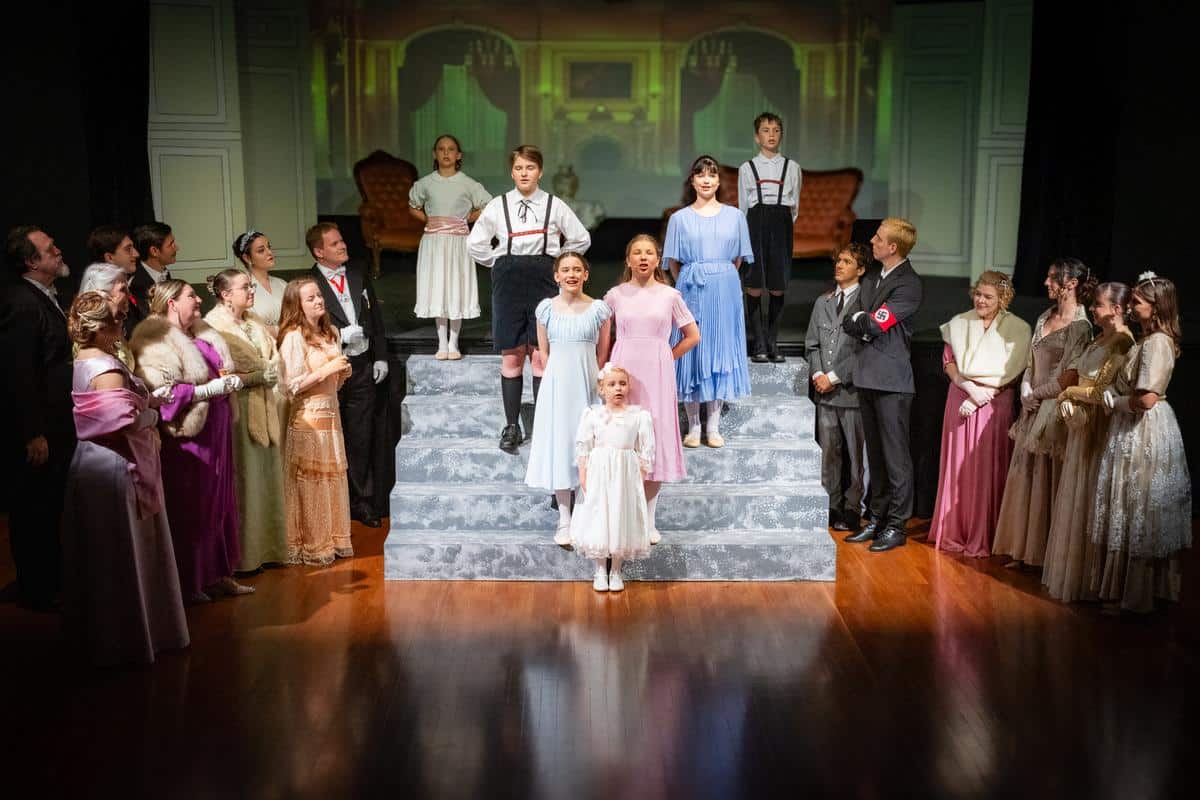
The weak link in this production was Captain Von Trapp, stiffly played by Nigel Goodwin. He comments, “I’ve never been called exciting before” and unfortunately, in terms of a lead performance, never a truer word has been spoken. Given that the love story is a central premise to the script, credibility, passion and even ‘Edelweiss’ went south here.
Similarly, Max, played by (Daren Goodison) looked the part but struggled with both timing and showmanship. What might have been witty three-handers between the Baroness, Max and the Captain became about as wooden as anything you’d find at IKEA. It may be that the lovely Baroness (Erin Sirle) struggled to find her form given the incumbent lumber.
Antagonist, Admiral Von Schrieber ( Kieran Smith) doesn’t cut the mustard either, lacking both age and authority. Less gravy and more gravitas? Weaker scenes aside, the costumes were impeccable and deserve special mention, as does the ensemble cast, who were consistently impressive in both character work and harmonies.
Supporting actors Peter Shaw (Franz the Butler), Imogen Porter (Frau Schmidt), and Zac Porter (Herr Zeller), leaned into their Teutonic accents channelling an entertaining ‘Allo ‘Allo vibe. That being said, the he old stage wisdom – either everyone in the cast does accents, or no one does – might have been more effective than a Smith’s Variety Pack approach.
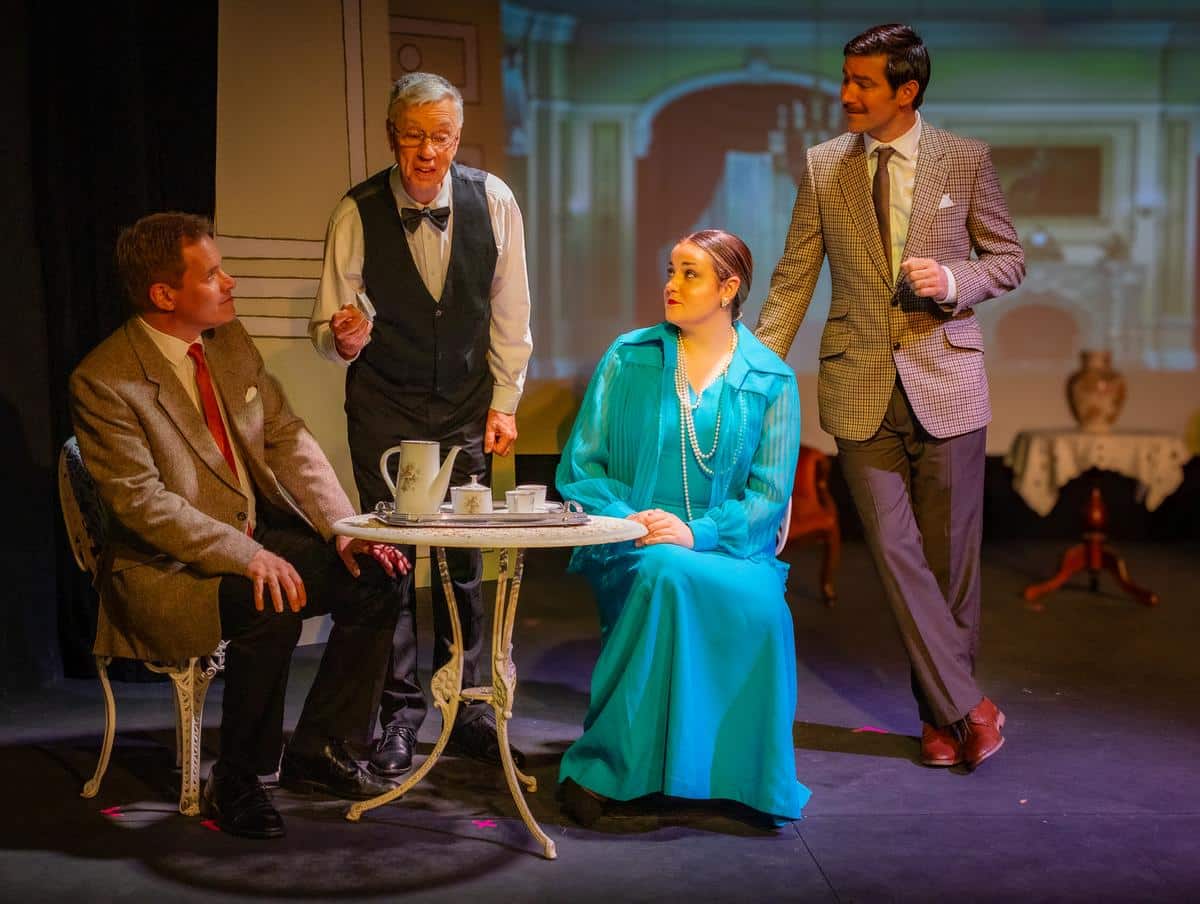
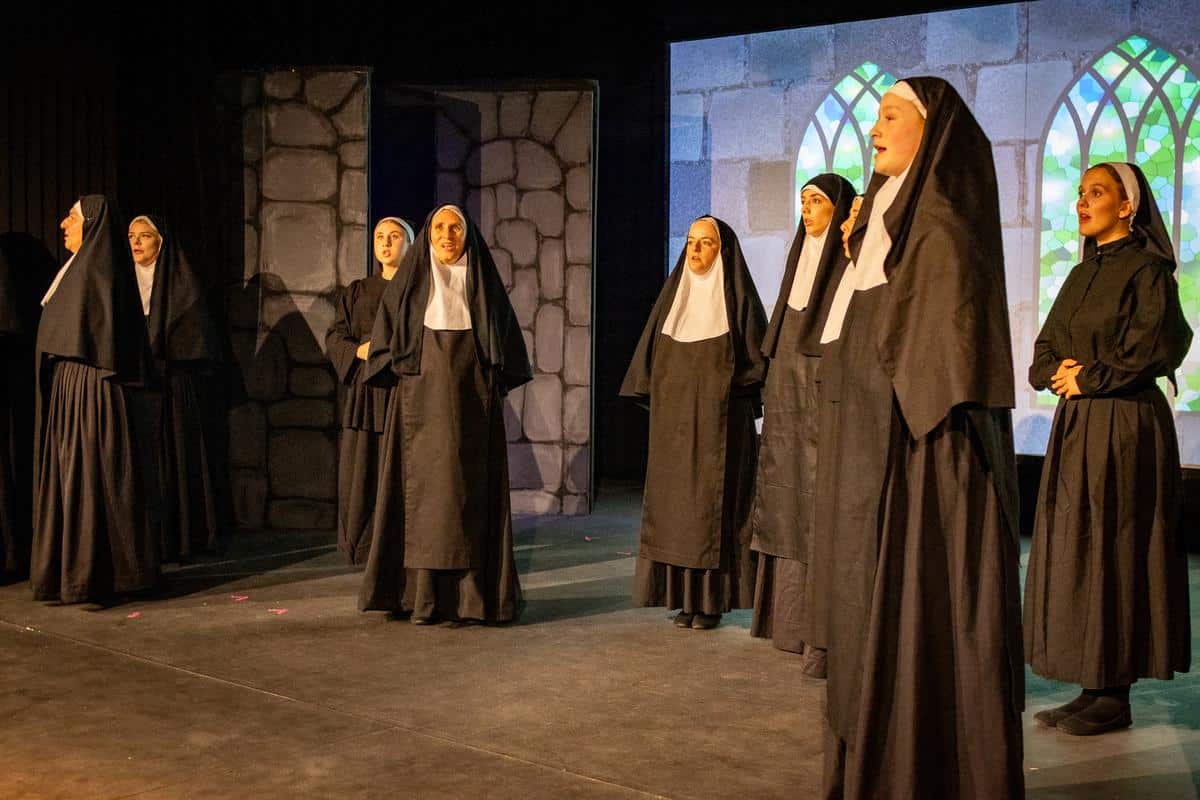
Rolf (David Bell) and Liesl (Escher Roe) both show promise and it will be interesting to watch where these young performers go, as did newcomer, Michael Smith as Baron Elberfield.
The set design suffered from a case of indecision-itus, wavering between realism, minimalism and kitsch; the plastic greenery being a low blow ( or low brow?) On the other hand, the wedding and final scenes were both visual and musical delights.
This is community theatre, and as such, it deserves support and appreciation. It runs on the goodwill and tireless efforts of so many talented contributors. A standout, special ‘Alleluia’ to Nick Navarra and team for their spirited (and spiritual) musical direction – and the choreography. You’ll likely find yourself humming a tune on the car ride home.
Who among us couldn’t use a bit more ‘Do-Re-Mi’ in our lives?
The Sound Of Music runs to November 30th. To book tickets, please visit https://melvilletheatrecompany.au/
Session Dates/Times:-
Performance Dates:
Evening
November 15, 16, 17, 21, 22, 23, 24, 28, 29, 30
Matinees
November 17, 24
Times: All evening shows at 7.30 pm
Sunday Matinees – November 17, 24 @ 5 pm
Photography: Curtain Call Creatives
